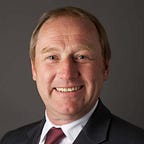All the world’s atwitter!
All the world’s atwitter! Or almost. Ninety-seven percent of all 193 UN member states have an official presence on the platform. The governments of only six countries, namely Laos, Mauritania, Nicaragua, North Korea, Swaziland and Turkmenistan do not have an official presence on the platform. Even the Chinese government’s State Council Information Office maintains a presence on Twitter, Facebook and YouTube, and seven Chinese embassies as well as one Chinese ambassador are now active on Twitter.
BCW’s Twiplomacy study 2018 identified 951 Twitter accounts — 372 personal and 579 institutional accounts — of heads of state and government and foreign ministers of 187 countries.
Facebook is the second-most popular network among government leaders and it is where they have the biggest audiences. The heads of government and foreign ministers of 179 countries are present on the platform, representing 93 percent of all UN member states. Instagram has become the third-most popular social network for governments and 81 percent of all UN member states have set up an account many of which are sharing daily Instagram stories.
Undeniably, Donald Trump has made the biggest impact on Twitter since taking office on January 20, 2017. @realDonaldTrump is the most followed world leader with more than 52 million followers. He has garnered by far the most interactions over the past 12 months, and his tweets average more than 20,000 retweets. He has posted the most retweeted tweet of any world leader, ‘slamming’ what he describes as “fake news CNN.”
The U.S. President has also changed the tone of discourse on Twitter, frequently insulting his opponents and lampooning foreign leaders, calling North Korean leader Kim Jong-un “little rocket man,” describing the Syrian president as a “gas killing animal,” and threatening air strikes and war via tweets.
Donald Trump’s undiplomatic tweets have left many governments around the world speechless and wondering how to reply to these Twitter outbursts. Very few leaders have replied directly to President Trump on Twitter, mindful not to start a Twitter spat with the most powerful world leader on on the platform. While some leaders have sub-tweeted the U.S. president without mentioning his Twitter handle, others, such as the leaders in the Nordic countries, have started to poke fun at him.
The U.S. President uses his personal Twitter handle, @realDonaldTrump, as his preferred channel for executive communications and global policy statements, rather than the official @POTUS account set up under Barack Obama for the President of the United States.
The U.S president is also among a very small group of world leaders who are personally active on their own Twitter accounts. Other leaders who tweet themselves include European Council President (@DonaldTusk), Denmark’s Prime Minister (@LarsLoekke) Rasmussen and Foreign Minister (@AndersSamuelsen), Latvia’s Foreign Minister (@EdgarsRinkevics), and Norway’s Prime Minister (@Erna_Solberg) who admitted to suffering from dyslexia and makes the occasional spelling mistake.
Twitter is the key channel of communication for digital diplomacy, and 131 foreign ministries and 107 foreign ministers maintain active accounts. Foreign ministries continue to expand their digital diplomatic networks, encouraging their missions and ambassadors worldwide to become active on social media.
For the third year running, the European External Action Service, the foreign policy arm of the European Union, is the best-connected government institution, mutually following 132 of its peers. @realDonaldTrump, @POTUS and the @WhiteHouse do not follow any other foreign leaders. However, the State Department has established mutual Twitter relations with 54 other world leaders and foreign ministries, and is even following Iran’s President @HassanRouhani and Foreign Minister @JZarif.
It is fair to say that those governments that do not allocate sufficient resources to their digital communications and social media channels risk being left behind and left out of the global digital diplomacy movement.
Read the full study on Twiplomacy.com
